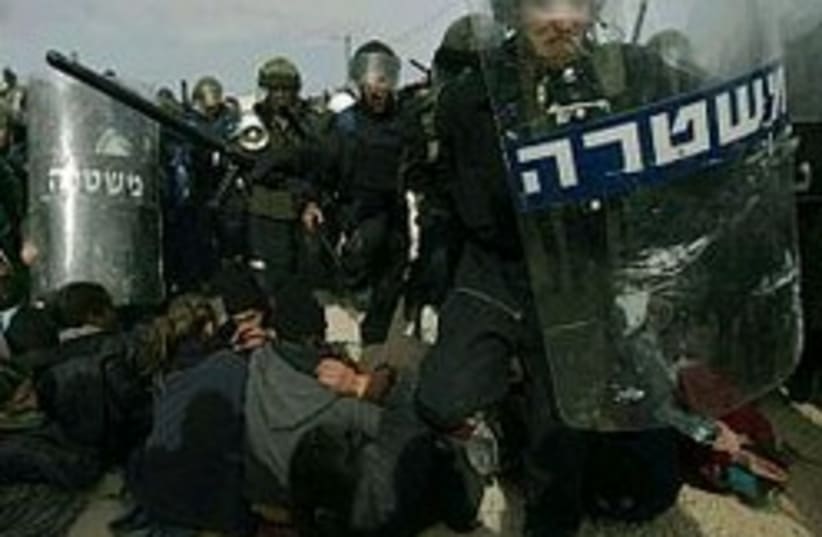| JPOST.COM HIT LIST | |
| JPost.com's most popular articles this past week |
Settlers, cops still at odds over Amona
Meet for the first time since the violent confrontation almost 3 months ago.


| JPOST.COM HIT LIST | |
| JPost.com's most popular articles this past week |